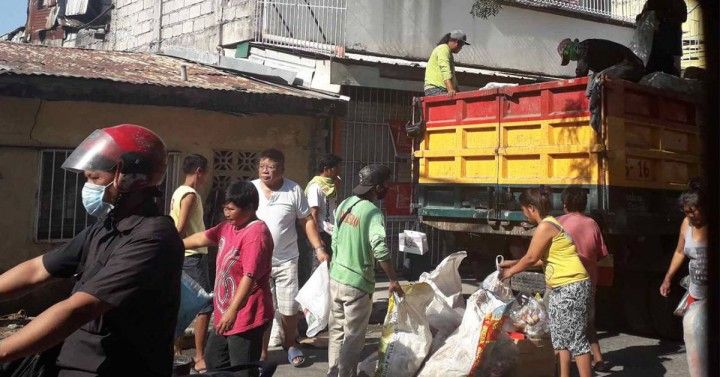CAINTA, Rizal – In a bid to maximize its resources, the local government is no longer renewing the contracts of private hauling companies, and will instead take care of collecting locally-generated garbage.
According to Atty. Keith Nieto in his capacity as municipal administrator, the local government has already invested on procuring 25 hauling trucks, even as he hinted at a ‘work-in-progress’ for the municipal materials recovery facility.
By next year, mag take over na ang munisipyo sa garbage collection natin.. at present, meron na tayong 25 trucks na nakahanda para sa transition,” Nieto said in a Facebook post.
“Pinaayos ni Mayor Elen ang Material Recovery Facility natin at pinasemento ang malaking bahagi nito para maging paradahan ng lahat ng equipment at trak ng munisipyo.. nung nakaraang huwebes, nagbuhos tayo sa lugar,” he added.
Other than MRF, the local government is likewise putting up its own recycling facility to reduce the volume of waste which will be brought to the government-designated engineered landfill in Morong, Rizal.
“Higit isang ektarya ito na binili ng munisipyo para maging recycling plant at equipment depot natin.”
Eating Up Millions
Most local government units have been allocating much from its annual operating budget to defray the bills charged by private haulers for the collection of garbage in their area of jurisdiction.
Web-based sources showed that an LGU usually pays a minimum of P6,000 per trip of a 14 cubic meter truck, which usually makes two to three trips a day for a densely populated locality like Cainta.
The amount however does not cover payment (dumping fee) collected by the private operators of engineered sanitary landfills.
According to a retired local government official, a town as big and dense as Cainta usually spends more than a hundred million for its local solid waste concerns.
Republic Act 9003
Interestingly, Republic Act 9003 – otherwise known as Ecological SolidWaste Management Act of 2000, provides for a comprehensive ecological solid waste management program by creating the necessary institutional mechanism and incentives.
The same law also cites the need to reduce the volume of garbage by way of recycling, reusing and reinventing non-biodegradable garbage processed to produce byproducts.
Biodegradable wastes (such as food waste, garden waste, and animal waste) are converted into suitable beneficial use like fertilizer and fuel.
RA 9003 describes solid waste management as a discipline associated with the control of generation, storage, collection, transfer and transport, processing, and disposal of solid wastes.
#OpinYonRizal #Cainta #GarbageCollection #WasteManagement #OpinYon #WeTakeAStand
